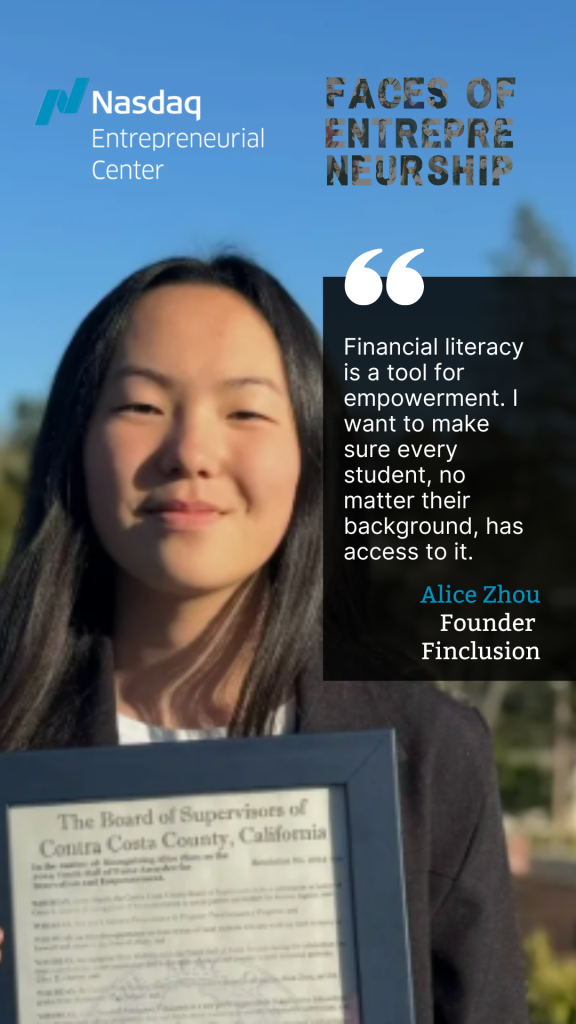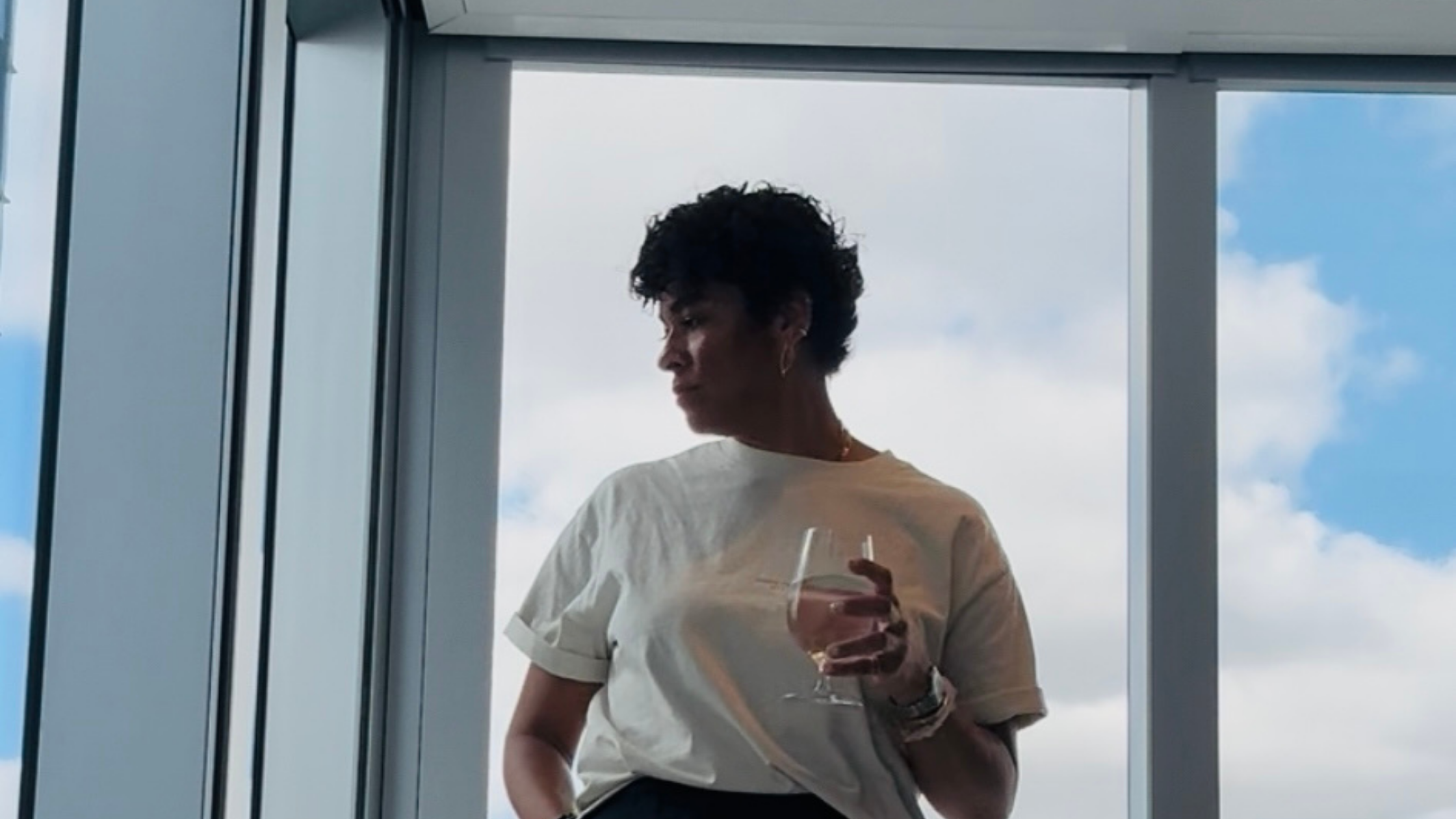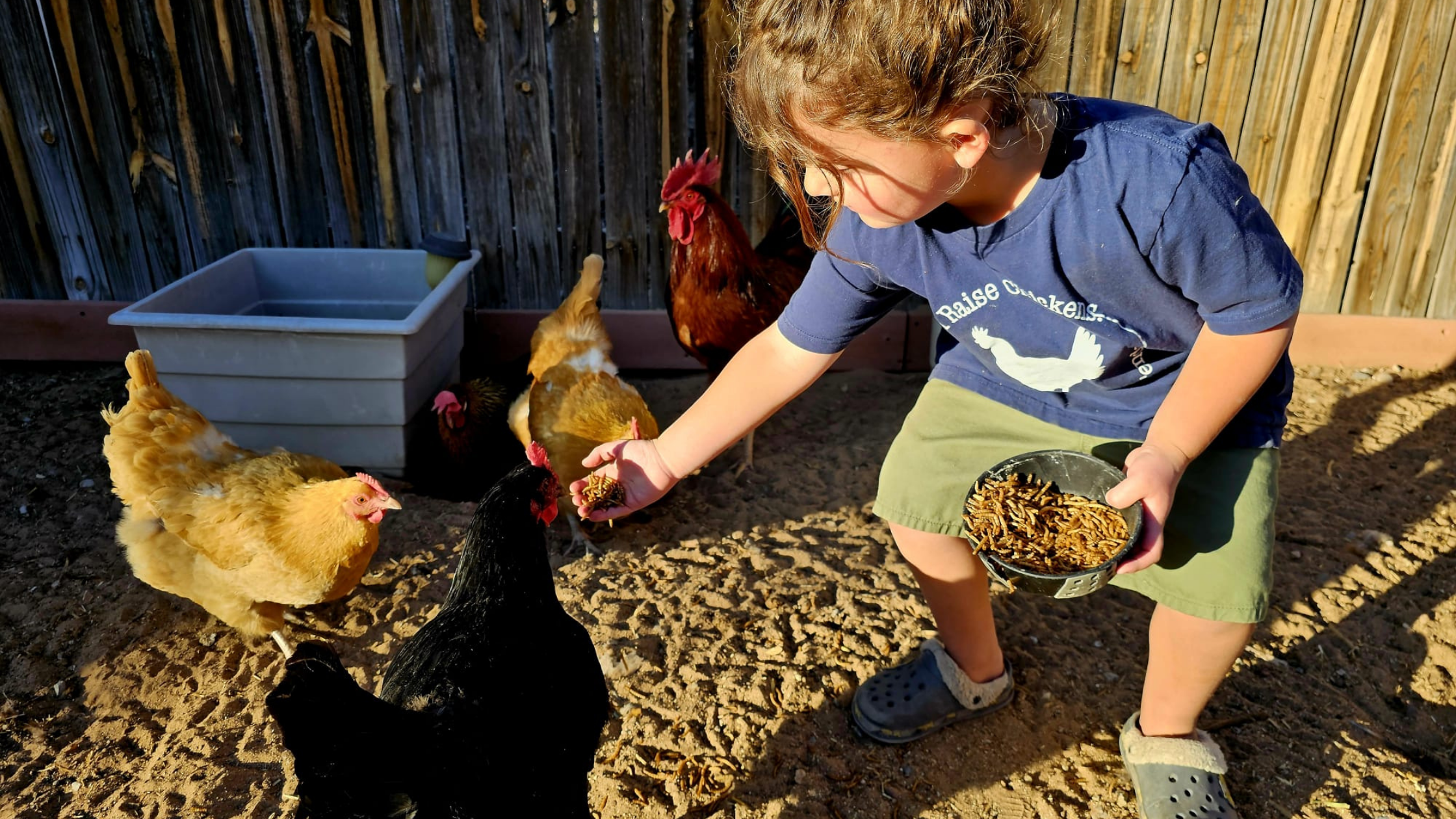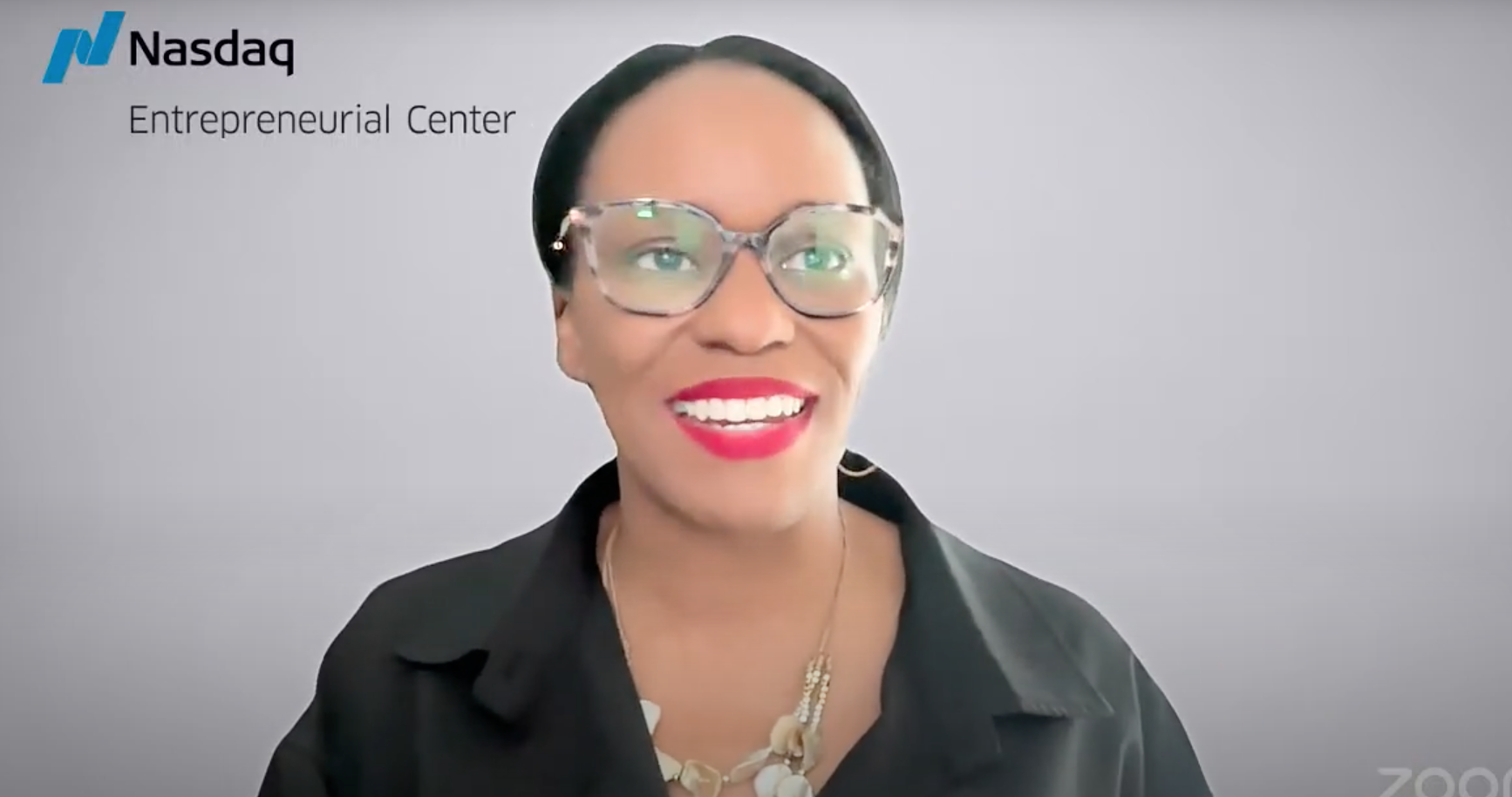At just 16, Alice Zhou is the founder and president of Finclusion, a non-profit dedicated to improving financial education for low-income high school students. Through fellowships, courses, and competitions, Finclusion empowers students to become socially responsible investors. Alice’s work has gained recognition from companies like Wells Fargo and The Hershey Company.
In addition to her non-profit work, Alice conducts research on educational disparities at UC Irvine and advocates for financial literacy as the youth board chairman of the California Council on Economic Education. Her commitment to creating equal opportunities has earned her national recognition.
What does “entrepreneurship” mean to you?
 Alice Zhou: Entrepreneurship is a way of life. The essential components of entrepreneurship are passion, problem identification, and execution. As an entrepreneur, one must not only seek innovative solutions to problems but also embrace risk and uncertainty to explore opportunities for growth.
Alice Zhou: Entrepreneurship is a way of life. The essential components of entrepreneurship are passion, problem identification, and execution. As an entrepreneur, one must not only seek innovative solutions to problems but also embrace risk and uncertainty to explore opportunities for growth.
Tell us about your first experience with entrepreneurship.
AZ: During the pandemic, I fell in love with making bread. At one point, I had way too many loaves for myself, so I decided to start selling them to friends and family. What began as a simple way to share my bread turned into a fully operational business in my home kitchen.
The best part? All proceeds are donated to local education access organizations. It’s a business I still run in my spare time, and it’s a great way for me to do something I’m passionate about while giving back to my community.
What is your company’s origin story? What is the biggest reason you started your business? What did those early days look like and teach you?
AZ: Through my firsthand experiences, I have witnessed the vast disparities in the quality of education between neighboring school districts caused by socioeconomic differences. These disparities perpetuate an alarming cycle of poverty, due to factors like lack of instructional materials and restricted access to courses. In speaking with community activists, political leaders, and fellow students, I discerned a prevalent issue in America’s education system: the absence of investment education has been and will persist in widening the wealth gap if not addressed. While middle- to upper-class households have access to a wealth of financial growth opportunities, low-income individuals are subject to financial obligations that perpetuate a cycle of financial instability. Seeing an opportunity to address this gap within our education system, I started Finclusion!
As cliché as it may sound, if there’s one thing the early days of growing Finclusion taught me, it’s perseverance and patience. Building an executive board, a team of mentors, and a board of advisors from the ground up takes a lot of patience and perseverance. I vividly remember sitting at my desk day and night, personally reviewing applications and scheduling interviews with prospective team members.
Reflecting on those early days, perseverance and patience stand out as the most important values I gained and refined throughout my journey in growing into what it is today.
What do you wish you knew when you started? Is there anything you would do differently?
AZ: Something I wish I had known earlier is to be less risk averse. Entrepreneurs can only discover room for growth and areas for improvement by embracing risk. The worst thing you can do is not try, because as Wayne Gretzky (one of my favorite athletes) once said, “You miss 100% of the shots you don’t take.”
This lesson has become crucial through my experience leading Finclusion, especially when it came to completely pivoting our fellowship model to focus solely on students at our partner Title I high schools. I can’t imagine where Finclusion would be today if I hadn’t taken those risks.
If there’s one thing I would do differently, it’s pretty straightforward—take more risks.
What does “success” look like for you? We’d love to hear your biggest, boldest dream. What do you think will help you achieve it?
AZ: Success means pursuing a cause that you are genuinely passionate about and uniting like-minded leaders to create solutions that provide value to people. My boldest dream is a world where everyone has access to quality education.
Tackling this dream starts with two things: targeted investment and funding in education access for underserved and remote areas and ongoing professional development to ensure a high standard of education for students. These are two of Finclusion’s main focuses in providing our programs.
What is your superpower as an entrepreneur? What is your proudest and darkest moment so far? Share a key high and a key low from your journey if you can.
AZ: Empathy is at the core of successful entrepreneurship. While effective communication, adaptability, and strategic planning are vital traits, the ability to mobilize your team toward a common goal is crucial. Leading with empathy means understanding your team’s problems, constraints, emotions, and situations. This helps a leader truly understand how to best support their people and come up with effective solutions.
My proudest moment in leading Finclusion has been hearing stories from the families of our fellows about the impact our fellowships have had on them. The darkest moment, and the most uncertain I have ever been, was when we pivoted from offering fellowships to the general public to focusing solely on select partner Title I high schools. This shift allowed us to invest more effectively in underserved communities, but it also meant cutting off a large portion of our existing customer base.
What are your personal driving principles, your top values?
AZ: Perseverance, empathy, and patience are my big three. Why? Because these values have guided me through all the highs and lows of my personal, entrepreneurial, athletic, and academic journey. They have been instrumental in shaping my approach to challenges and growth.
How have your personal principles and values shaped your company’s values and principles? Give us some examples.
AZ: My core values form the foundation of the values our company embraces. Whether through one-on-one meetings or company-wide calls, I consistently emphasize these values to my team, especially during challenging times. They serve as our guiding principles in navigating obstacles and achieving our goals together.
What’s it like to work alone or with your partners?
AZ: I find value in both working alone and collaborating with my team. When working alone, I appreciate the full autonomy I have over the projects I develop. However, this autonomy can sometimes lead to impulsive decisions. Not every idea that feels like “the best ever and ready for immediate implementation” aligns with the perspectives of others or with what’s best for Finclusion.
Through collaboration with my team, I’ve learned the value of deliberation and collective wisdom. By pooling together our ideas, we can identify and implement the most optimal solutions for the students we serve. This approach allows us to slowly roll out innovations and ensures they are well-calibrated and effective. The synergy of our diverse perspectives has often led to breakthroughs we may not have achieved on our own.
What role does mentorship play in your world (as a mentor or mentee)? Tell us about what makes mentorship valuable to you and your business.
AZ: I highly value learning from shared experiences, whether they involve successes or failures, which is why mentorship is crucial for both my personal development and for Finclusion. In fact, mentorship is the cornerstone of Finclusion’s fellowship model. As a mentor within our programs, I not only offer guidance based on my own experiences but also gain valuable insights from students from diverse backgrounds.
Beyond our fellowship, we have a Board of Advisors with mentors/ advisors that come from different walks of life. Drawing on their varied experiences and insights allows me to identify the most suitable solutions for driving innovations within Finclusion.
Can you share some insights into the market or industry you operate in? How have you navigated challenges and changes in the market landscape?
AZ: Finclusion operates in the dynamic education industry, where technology applications continually evolve. We are committed to integrating new technological innovations into our programs, such as gamification to enhance student engagement and microlearning for efficient knowledge consumption.
Many entrepreneurs continue to perfect their daily routines to support their work and greater vision; would you mind sharing your morning routine or a regular ritual that grounds your work each day?
AZ: My daily routine begins with a hearty breakfast accompanied by reading the Wall Street Journal or listening to a TedTalk. I then take my dog for a walk—no music or podcasts, just a moment of clarity to mentally outline my daily goals. In the evening, I unwind with journaling, something that helps me clear my mind and set goals for the next day. I have found that keeping my routine simple allows me to stay consistent with my routine.
How do you manage the work-life balance as an entrepreneur? What strategies have you found effective in maintaining your well-being?
AZ: Sticking to the daily habits that help me reflect on how I use my time is key. Equally important is recognizing that carving out time for friends and family is just as crucial as any work commitment, ensuring I have a healthy balance between work and life.
Where do you turn for inspiration?
AZ: Drives in the city, meeting new people, Google Scholar, and my parents. Inspiration is pretty much everywhere — you just have to look for it. As Ferris Bueller says, “Life moves pretty fast. If you don’t stop and look around once in a while, you could miss it.”
Building and sustaining a business often involves overcoming various challenges. Can you share a specific moment where your entrepreneurial resilience was tested, and how did you navigate through it to ensure the sustainability of your business? What lessons did you learn from that experience?
AZ: One of the most challenging moments testing my entrepreneurial resilience was when we encountered a sudden surge in demand for fellowships. At that time, our team had far fewer mentors than required to support the 45%+ increase in Title I high schools seeking to partner with us. It was a chaotic period where everyone rallied to recruit mentors, and we had to swiftly train a new cohort.
From this experience, I’ve learned the vital lesson of preparing for unexpected and significant changes. Since then, I’ve led Finclusion with a proactive approach, ensuring readiness to handle unforeseen challenges effectively. As one of my favorite sayings goes, “chance favors the prepared.”
Do you have a favorite quote, mantra, or words of wisdom to get through the tough days?
AZ: “The future belongs to those who believe in the beauty of their dreams.” -Eleanor Roosevelt
What is a problem that keeps you up at night?
AZ: Education is the great equalizer but access to education is not equal.
How do you think about helping others through your work?
AZ: My vision for Finclusion is to offer quality investment education to underserved students. We take a direct approach to support others by providing resources and guidance that empower students to manage their finances and make mindful investments in socially responsible companies.
Have you faced any significant crises in your business, and how did you manage and overcome them?
AZ: Yes. However, I don’t necessarily view these moments as “crises,” but as opportunities for growth. Every challenge or setback Finclusion faces prompts us to identify weaknesses and strategically approach our next attempt. At Finclusion, it’s not about avoiding failures altogether but learning from each experience. Whether we stumble once or a hundred times, the key is to glean insights and ensure we don’t repeat the same mistakes.
What advice do you have for fellow (and aspiring) entrepreneurs building and leading teams?
AZ: Lead with empathy and always think about how you can provide value to others; your actions will reciprocate.
What kind of an entrepreneur do you want to be known as – as in, what do you want your legacy to be?
AZ: I want to be recognized as an entrepreneur who empowers others to realize their dreams. By understanding my teammates’ needs and supporting them through challenges, I strive to inspire others to join me in making a profound impact on the quality of education for every student. It’s not merely about the quantity of students we influence, but the transformative impact and outcomes that educational opportunities can bring to their lives.
.
Do you have someone you’d like to nominate to be profiled in our Faces of Entrepreneurship series? Please let us know by emailing media@thecenter.nasdaq.org or submitting your nomination using this form.




